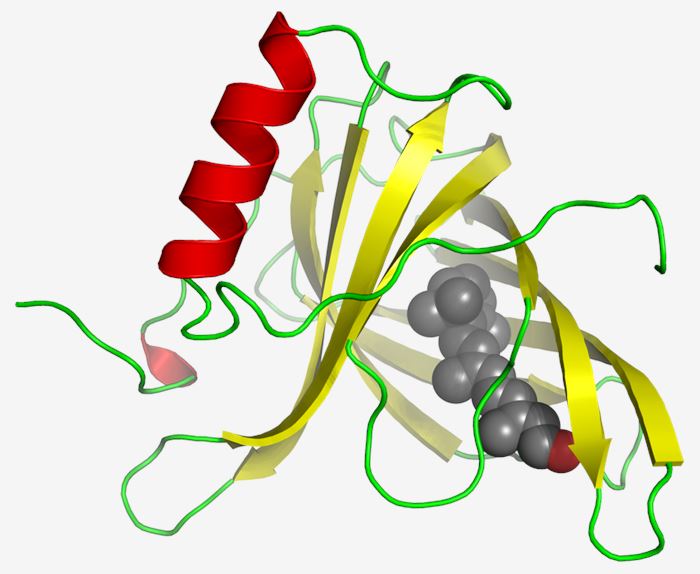Based on the extensive experience and advanced technology platforms in antibody development, Creative Biolabs is able to offer a full range of biomarker-specific in vitro diagnostic (IVD) antibody development services. Here, we focus on the retinol-binding protein 4 (RBP4) as a marker of kidney diseases.
Retinol-binding Protein 4
RBP4, also known as RBP, PRBP, MCOPCB10, or RDCCAS, is an approximately 21-kDa monomeric-binding protein that belongs to the lipocalin family. It’s mainly secreted by the liver and adipose tissue and acts as a retinol (ROH, the alcoholic form of vitamin A) transporter in the blood. RBP4 is a single polypeptide chain with a hydrophobic pocket where retinol binds. And it’s a specific carrier for retinol and delivers it from the liver to the peripheral tissues. In plasma, the RBP-retinol complex can interact with transthyretin (TTR, thyroxine-binding protein), which prevents its loss by filtration via the kidney glomeruli. RBP4 is the sole carrier for retinol which is an important nutrient for the visual cycle, thus it has been a drug target for ophthalmic diseases. Recently, RBP4 is also described as an adipokine that contributes to insulin resistance and increased diabetes risk. This protein may be involved in metabolic disturbance as suggested by other studies.
 Fig.1 RBP4 structure. Distributed under public domain, from Wiki,
without modification.
Fig.1 RBP4 structure. Distributed under public domain, from Wiki,
without modification.
Diagnostic Utility of RBP4 in Kidney Disease
RBP4 is a novel adipokine that has been correlated with insulin resistance and type 2 diabetes. Patients with end-stage renal diseases have a very high level of RBP4 in the serum. RBP4 is associated with the progression of renal failure and end-stage renal. Current research by Xun et al. (2018) has compared serum RBP4 between chronic kidney disease (CKD) patients and healthy controls, and analyzed their association with biomarkers, such as cystatin C (CysC), creatinine (CREA), urea, uric acid (UA), total protein (TP), Albumin (ALB), and Proteinuria (PRO) in CKD patients. The serum samples from 51 patients with CKD and 30 healthy controls indicated that the circulating RBP4 level was significantly higher in CKD than those of controls (P<0.05). And sera RBP4 was positively related to sera CysC, CREA, and urea (P<0.01). Receiver operating characteristic (ROC) analysis revealed that the area under the curve of RBP4 was 0.734. When the cutoff was at 78.75 ng/mL, the sensitivity and specificity were 52.9% and 100%, respectively. It’s the first report to show the diagnostic value of RBP4 for CKD.
IVD Antibody Development Services Targeting RBP4 Marker
IVD antibodies have been commonly used in immunodiagnostic kits for disease diagnosis and prognosis. Creative Biolabs has built a versatile IVD platform to provide custom biomarker-specific IVD antibody development services to global clients. Along with over a decade of rich experience in providing excellent custom services for IVD antibody discovery, our services can totally meet your special requirements. Besides, Creative Biolabs provides one-stop diagnostic immunoassay development services, including feasibility analysis, assay design, assay protocol establishment, validation, and production. If you are interested in our services, please do not hesitate to contact us for more details.
For Research Use Only.